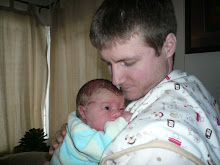What do we mean by poverty? Not what Dickens or Blake or Mayhew meant. Today no one seriously expects to go hungry in England or to live without running water or medical care or even TV. Poverty has been redefined in industrial countries, so that anyone at the lower end of the income distribution is poor ex officio, as it were - poor by virtue of having less than the rich. And of course by this logic, the only way of eliminating poverty is by an egalitarian redistribution of wealth - even if the society as a whole were to become poorer as a result.
Such redistribution was the goal of the welfare state. But it has not eliminated poverty, despite the vast sums expended, and despite the fact that the poor are now substantially richer - indeed are not, by traditional standards, poor at all. As long as the rich exist, so must the poor, as we now define them.
Dr. Dalrymple goes on to talk about the squalor in England and the condition of some of his patients. Their squalor is chosen, since many in similar circumstances were able to overcome it, and it is not material or economic, but a spiritual, moral and cultural poverty, a lack of self-discipline, a life without meaning, without God.
To be sure, poverty in the developed world is different from poverty in the third world where most live on less than a dollar a day and each day survived is an achievement, worthy of self-respect. Rather, Dr. Dalrymple suggests first world poverty is the worst kind - it is poverty of soul. I tend to agree. I can see it spreading deeper and deeper into our culture and society. Movies, music, TV, advertisement, academia, politics... poverty of soul is becoming more evident each day. Just listen to the news. Even in small things, like a young dating couple walking hand in hand, talking and texting on their own cell phones, paying no attention to the flesh and blood person beside them, but rather wasting efforts on their impersonal handheld devices. Ah, young love. Oh, Just wait - I need to text someone.

No comments:
Post a Comment